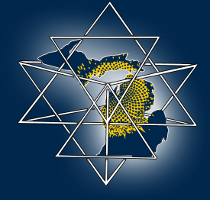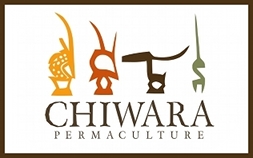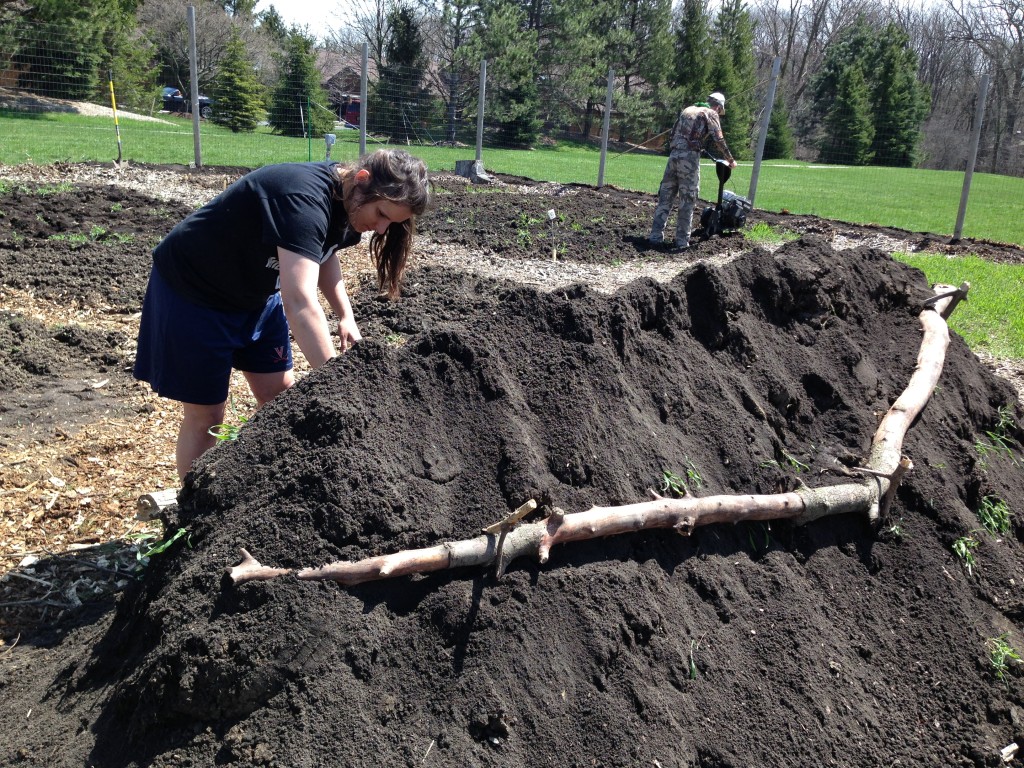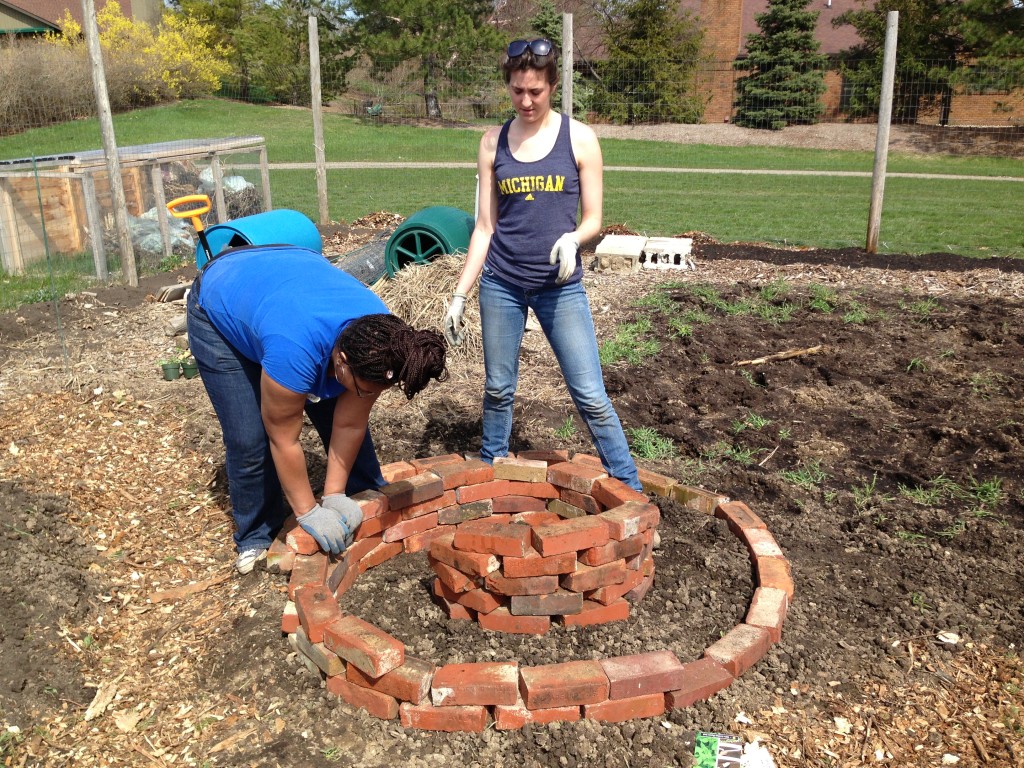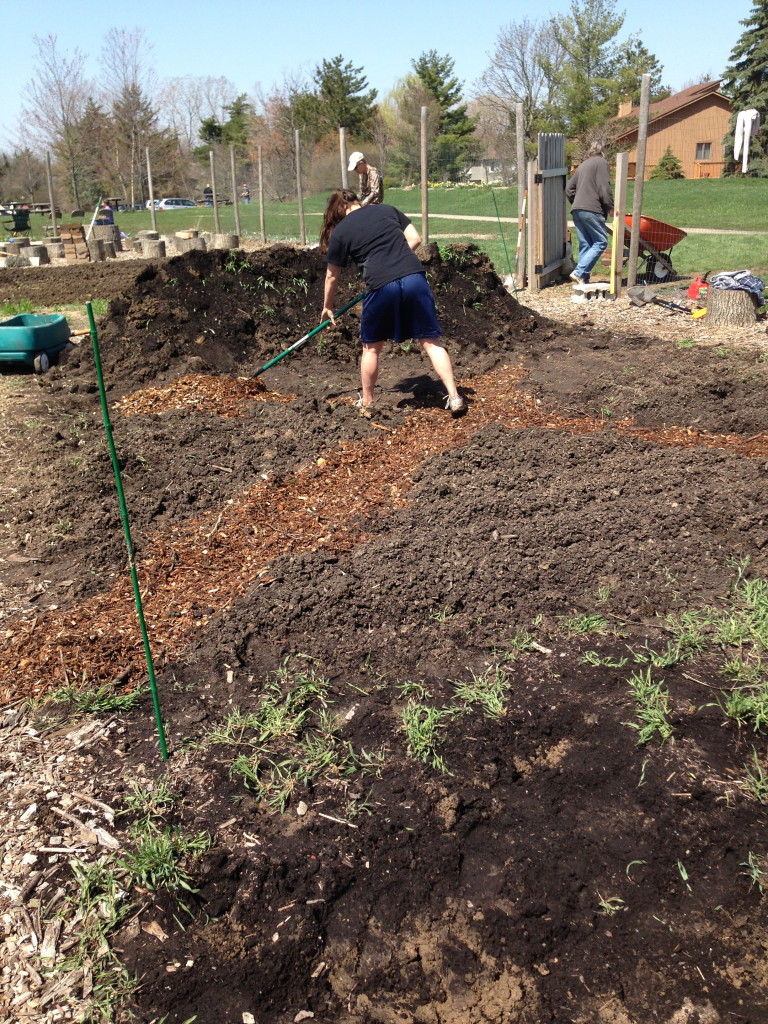Chiwara Permaculture R&D Lab, Ann Arbor, MI
The UM Permaculture Initiative would not have been made possible if it was not for its partnership with Chiwara Permaculture in Ann Arbor.
Chiwara Permaculture L3C is a Michigan based research, education, design and incubation firm. We focus on permaculture solutions in 6 main areas: Food, Energy, Water, Building, Transportation and Waste.
We offer three tiers of educational programming: K-12, College/University, and Professional.We believe that permaculture is a powerful vehicle for STEM education and problem based learning. To that end, we combine our research work with our educational programs, in pursuit of innovative solutions to community problems. Our best ideas are incubated and shared, toward ecological economic development.
Our mission, guidance and business practices are found within the Permaculture principles and ethics. Small scale, community based solutions integrated with nature. -Nathan Ayers with Chiwara Permaculture
For more information please go to http://www.chiwarapermaculture.com/ or e-mail Nathan Ayers at ayers.nathan@gmail.com
University of Michigan Sustainable Food Program, Ann Arbor, MI
The Permaculture Design Team is a part of the University of Michigan Sustainable Food Program (UMSFP). UMSFP is an umbrella organization that assists groups focused on sustainable food in accomplishing their goals as a student organization. From their website,
The UM Sustainable Food Program fosters collaborative leadership that empowers students to create a sustainable food system at the University of Michigan while becoming change agents for a vibrant planet. To further this mission, the UMSFP focuses effort in three specific areas:
1.Developing responsible citizens and leaders by facilitating formal and informal education on sustainable food topics
2.Strengthening communities through collaborative programming and outreach
3.Growing sustainable food that supports the well-being of people and the environment at the University of Michigan and beyond
For more information go to UMSFP.com or e-mail UMSFP-core@umich.edu
Martin Luther King Jr. Elementary School, 3800 Waldenwood Dr. Ann Arbor, MI 48105
The Permaculture Design Team assists King Elementary in redesigning their learning garden each season, by helping build infrastructure in the garden, planting seeds and seedlings, and creating a garden-based curriculum, while also teaching science to fifthgrade students. The following parties are involved in this partnership: King Elementary School students, staff, families, and community partnerships including Agrarian Adventure, U of M students including the U of M Permaculture Design Team and Cultivating Community members, and farmers. The Permaculture Design Team designed and installed a 500 square foot permaculture pilot garden within the 5,000 square foot King Learning Garden at King Elementary. The PDTs partnership with King Elementary is vital as we are creating a model for garden based education in the elementary education system. Ultimately we are striving to improve the health of students, increase their retention rates, and knowledge of sustainable systems and systematic problem solving skills. These partnerships and this project are extremely important, as we are all working together to create a model of experiential, hands-on education that can be implemented within other institutions.
The goal for the King School Learning Garden is to continue to represent a sustainable education model that includes ecological knowledge, cooperative school culture, and immersion in a hands-on project, as well as learning based on a sense of understanding the place in which we live. The school garden is also designed to represent a cultural and practical shift in priorities towards the earth by engaging students to utilize it during and outside of the school day. It will also provide positive benefits such as access to local food production and training, curriculum connection, increased learner engagement, movement, and student connection to the land. We would like to see positive health benefits related to school garden programs by promoting physical activity, healthy eating habits, fresh access to locally and organically grown food to our students. We plan to integrate curriculum across all disciplines including Language Arts, Social Studies, Science, and Math, and special area classes that involve Physical Education, Health, Humanities, Art, and Music. We want to develop food and garden based curriculum so that they are incorporated in the daily school culture at King and help students retain information and apply critical thinking skills to everyday life.
For more information please go to http://www.aaps.k12.mi.us/king.home/home or e-amil Neha Shaw at shahn@aaps.k12.mi.us
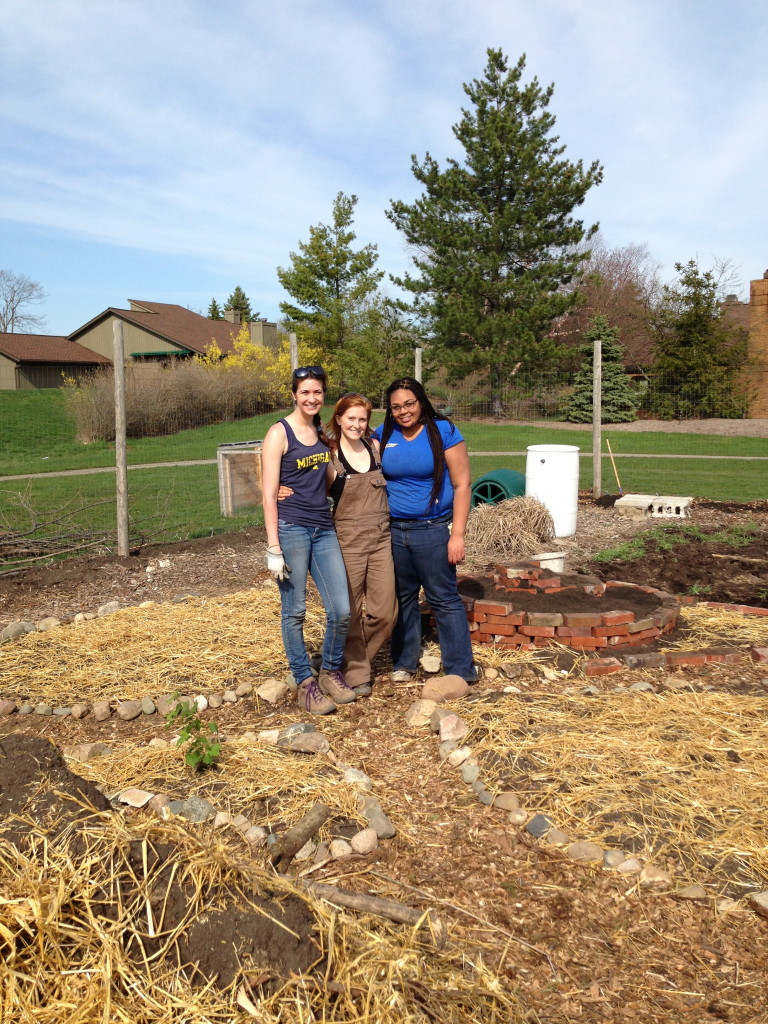
Students Madeline Dunn, Rebekah Kreckman, and Precious Smith stand in the new permaculture learning garden at King Elementary
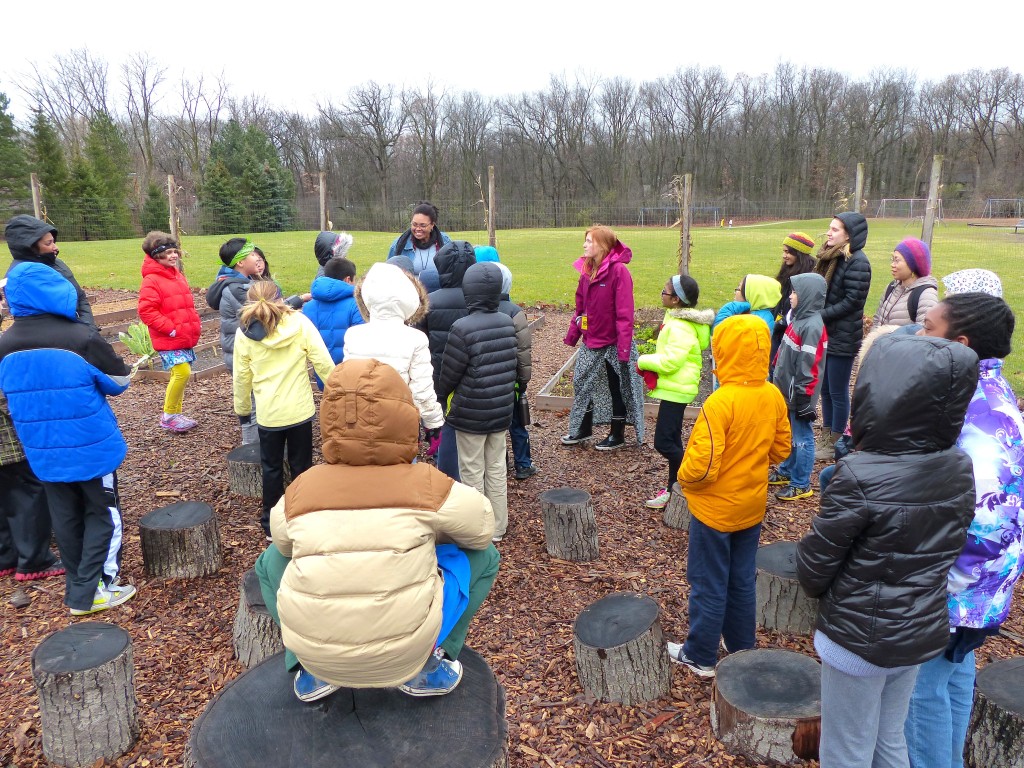
Fall 2023- First permaculture science lesson taught to 5th grade students in the King Learning Garden
